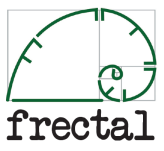Healthcare: an introduction
Healthcare, as an important body of both science and art has developed over many centuries with a body of knowledge that has been fostered by healthcare professionals who have long played a key leadership role in the delivery of healthcare.
While tremendous progress in healthcare science has been made over the past centuries, in more recent years it has become apparent that despite significant recent investment and progress in healthcare, that many systems (across the western world as much as the developing world) are struggling to cope with their systems under increasing pressure.
Taking on a career in Emergency Medicine after medical school was a straightforward personal choice. Emergency Medicine is at the frontline of the healthcare system, at the critical interface between primary and secondary care. EDs are open 24/7 and take all comers from those with major trauma to the minor injuries and lots more variety in between. Its a specialty that needs senior decision makers and when I took on the choice, there was not then, nor is there now, enough specialists in this important field.
There are few better places to see the insatiable demand on healthcare systems than Emergency Departments. Over my time in Emergency Medicine it has become clear that we need to revise our current approach to the delivery of healthcare. So we need to change. By change I do not mean we need to add more pressure to those at the frontline. Rather I mean we need to work smarter rather than harder
Let me now introduce 5 related articles about healthcare.
Firstly we need to examine the current state of healthcare in some more detail, to clearly state the current challenges that exist across healthcare systems and the need to change.
Secondly, to understand healthcare challenges at the level of an individual patient, we need to explore how complicated and complex it can be and how we can improve this the key critical element of healthcare, i.e., the encounter between clinician and patient..
Thirdly to explore mechanisms to healthcare improvement at a practice/departmental level, we will focus on healthcare audit and look at common challenges in information and knowledge management therein as well as potential remedies.
Fourth, at a higher level again, we need to explore the current disconnect between healthcare delivery at the frontline and healthcare research, plus how this may be addressed.
Fifth and last, we need to explore the efforts that are being made by governments across the world to introduce better “Value” from healthcare systems.
- Healthcare under pressure ..and needs to change
- Healthcare; challenges at the frontline
- Healthcare-and-the-challenge-of-departmental-improvement
- Healthcare; the “right thing to do” challenge
- Healthcare; the Value challenge
Beyond these introductory articles on Healthcare, let me explain some other related material here..
One of the common themes that will emerge from this exploration of healthcare, is that improvements are hard due to the complexity of the healthcare system. For that reason, you might be interested in material on a related and useful framework, which helps illustrate principles for tackling complexity, change in complex systems etc.
In addition, to tackle any change we explore the complexity of organisational change and look for common patterns that emerge.
As it is such a real challenge, we will then focus in particular at the interplay between process improvement and information technology sciences.
In the final chapter, we then return to healthcare to focus on informatics, its role in improving healthcare, how to handle its complexity and some related developments of interest…





Leave a comment